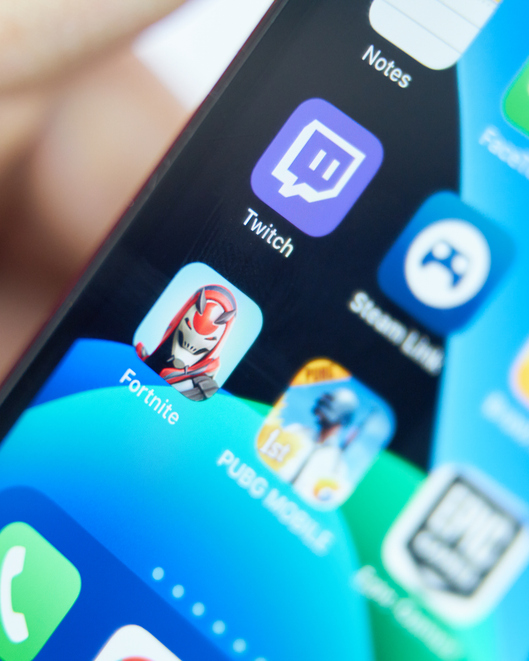Twitch Grapples with Content Moderation Crisis Amid Israel-Palestine Controversy
Twitch, Amazon's widely popular livestreaming platform, is embroiled in a heated debate over its handling of politically sensitive content related to the Israel-Palestine conflict. With creators airing polarizing views, advertisers abandoning ship, and accusations of inconsistent enforcement of its policies, Twitch faces mounting pressure to balance free expression with accountability.
Major advertisers, including JPMorgan Chase, Chevron, AT&T, and Dunkin’ Donuts, have pulled ads from the platform, citing concerns about hateful rhetoric, including allegations of antisemitism. The fallout highlights the challenges for tech platforms attempting to navigate divisive global issues while maintaining advertiser confidence and user engagement.
Advertisers Cut Ties Over Brand Safety Concerns
JPMorgan Chase was among the first brands to withdraw advertising, part of what insiders described as a broader effort to safeguard its brand image. While the company hasn’t directly tied its decision to specific content, sources note concerns about antisemitism and content adjacent to its ads. Similarly, Chevron expressed dissatisfaction with the platform following remarks made at TwitchCon, the platform’s semi-annual convention.
“As an event sponsor, Chevron relied on conference organizers to exercise stringent oversight of presentations and content, and we are disappointed that such divisive rhetoric was allowed onstage,” the company said in a statement.
Both AT&T and Dunkin’ Donuts have also distanced themselves, further amplifying pressure on Twitch to reevaluate its content moderation policies. While Twitch declined to comment on specific advertisers, the platform acknowledged the importance of maintaining a safe and inclusive community.
Creators at the Center of the Storm
The controversy has placed high-profile Twitch creators like Hasan Piker, better known as HasanAbi, under scrutiny. With over 2.8 million followers, Piker is one of Twitch’s most influential voices. However, his outspoken criticism of Israel’s government has drawn allegations of antisemitism.
Rep. Ritchie Torres of New York accused Piker of spreading antisemitic and anti-American propaganda, citing comments allegedly demeaning Orthodox Jews and individuals supporting Israel. Piker has denied these allegations, asserting his criticism is directed at Israeli policies, not Jewish people.
“I’ve been an outspoken advocate for Palestinian emancipation for the past 10 years,” Piker told CNN, describing the accusations as attempts to silence anti-Zionist voices.
Piker is not the only creator under fire. Zack “Asmongold” Hoyt, a popular streamer with over 3.6 million followers, faced backlash for inflammatory remarks about Palestinians during the height of the Gaza conflict. In a livestream, Hoyt called Palestinians “terrible people” and claimed he had no sympathy for those he described as coming from an “inferior culture.” Hoyt later issued an apology, calling his remarks “disgusting” and admitting he deserved the repercussions.
The Fallout from TwitchCon
TwitchCon, which took place in September, became a flashpoint in the platform’s content moderation crisis. During a panel hosted by the “Ayyrabs Podcast,” creators ranked streamers’ “Arab-ness” on a tier list that included the label “Loves Sabra.” Sabra, a hummus brand associated with Israeli companies, is a common target of pro-Palestinian boycotts.
The panel’s backdrop prominently displayed logos from Twitch sponsors like Chevron and Samsung, tying the brands to the controversy. Following the event, Twitch suspended the panelists, including Frogan, the podcast’s host, and others associated with the session.
The incident drew sharp criticism from advertisers and advocacy groups. The Anti-Defamation League (ADL) called on Twitch to address antisemitism and hate on its platform more effectively. “Twitch must learn from this situation and improve how they address antisemitism and hate on their platform, which is an ongoing and significant challenge,” the ADL stated.
Latest: NASA’s Artemis Moon Mission Delayed Again: What's Causing the Hold-Up?
Campaigns and Counter-Campaigns
Amid the controversy, former Twitch creator Dan “DanCantStream” Saltman launched a campaign to pressure advertisers to abandon the platform. Saltman, who was banned for violating harassment policies, claims his campaign has contacted over 100 advertisers to date.
“Our goal is simple: accountability at Twitch, including the resignation of CEO Dan Clancy,” Saltman told Bloomberg. He argues Twitch has failed to enforce its rules uniformly, particularly against prominent streamers like Piker and Hoyt.
However, Saltman’s critics allege his campaign is not driven solely by a desire for accountability. Detractors accuse him and his supporters of engaging in targeted harassment, including the doxxing of Twitch employees and journalists.
Twitch’s Response and Policy Updates
Twitch has attempted to address the backlash by revising its policies. In November, the platform added the term “Zionist” to its hate speech guidelines when used to attack or demean individuals. Twitch clarified that discussing Zionism as a political ideology remains allowed, provided it doesn’t target individuals or groups.
The company also introduced a new content label, “Politics and Sensitive Social Issues,” aimed at helping advertisers and users filter their interactions with political content. Twitch stated its goal is not to stifle discourse but to prevent “coded hate” directed at marginalized groups.
“Twitch enforces its policies evenly,” the company said in a statement. “Any and all content on Twitch must abide by our Community Guidelines, and we apply these rules objectively, to all of our creators.”
The Bigger Picture
The Twitch controversy underscores the growing tension between freedom of expression and the need for accountability on digital platforms. As political debates become more prominent on social media, tech companies face increasing pressure to moderate content effectively while avoiding accusations of censorship.
For Twitch, the stakes are particularly high. The platform’s reliance on high-profile creators and lucrative advertising deals means it must balance competing interests carefully. Failure to address these issues transparently could result in further advertiser losses, eroding trust with its community and stakeholders alike.
As Twitch navigates this crisis, its actions will serve as a bellwether for how digital platforms handle politically sensitive content in an era of heightened polarization.














